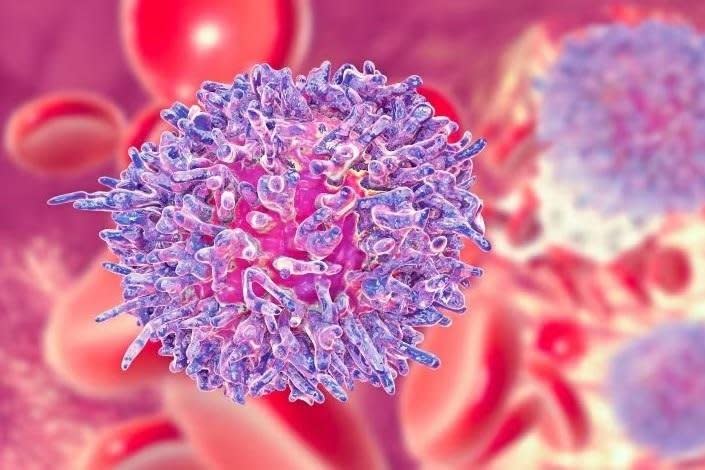Treatments for lymphoma have advanced beyond chemotherapy

For anyone newly diagnosed with blood cancers known as lymphomas, their first question might be: What treatments can help?
Of course, there have been big advances in chemotherapy against the disease, but treatments now go beyond chemo, said Mayo Clinic expert Dr. Stephen Ansell.
"It's about improving outcomes while minimizing side effects -- using treatments that can specifically target the cancer and have less of an impact on the body's healthy, normal cells," Ansell said in a Mayo news release.
"There is a high percentage of patients whose lymphoma is cured," he added. "When people are cured, they may have to deal with long-term complications. Our idea is to have the best outcomes and minimize long-term problems."
According to the American Cancer Society, there are about 80,620 cases of the leading type of lymphoma, Non-Hodgkin lymphoma, diagnosed among Americans each year, and just over 20,000 deaths annually. The disease tends to strike men more often than women.
Nearly 8,600 cases of Hodgkin lymphoma, the second major type, are diagnosed each year, and it kills just over 900 people annually. This type of cancer typically arises in youth or young adulthood -- in fact, it's the leading cancer type diagnosed in people ages 15 to 19, the ACS said.
According to Ansell, lymphomas' typical symptoms include swollen lymph nodes, itchy skin, night sweats, fever, persistent fatigue, unexplained weight loss and shortness of breath.
As far as treatment, that can include chemotherapy alone or chemo in conjunction with treatments such as cutting edge CAR-T therapies, immunotherapies, targeted therapy, bone marrow transplant and radiation therapy.
Ansell described each of these non-chemo options:
Immunotherapy. In these approaches, drugs trigger the body's own immune system to seek and destroy the lymphoma cells. These include what are known as immune-checkpoint therapy drugs that target cancer cells while leaving healthy cells unharmed.
CAR-T therapies. CAR-T stands for "chimeric antigen receptor-T cell" therapy. In this approach, doctors first remove the patient's immune system white cells, which are then tweaked in a lab to produce specific cellular receptors than can "activate T-cells' ability to recognize and kill cancer cells" once they are re-infused into the patient.
Targeted therapies include drugs that are designed to spot and then fight abnormalities within cancer cells, leaving healthy cells unharmed.
Bone marrow transplant. In this strategy, stem cells are infused into the body and help the patient's bone marrow begin again to produce healthy blood cells.
Radiation. This utilizes high-powered energy to zap cancer cells. "For certain types of non-Hodgkin lymphoma, radiation therapy may be the only treatment you need, particularly if your lymphoma is slow-growing and located in just one or two spots," Ansell explained. "More commonly, radiation is used after chemotherapy to kill any lymphoma cells that might remain."
So far, no one has determined how to prevent lymphomas, although living healthy -- a good diet, exercise -- can help lower your odds, Ansell said.
More information
Find out more about lymphoma at the Cleveland Clinic.
Copyright © 2024 HealthDay. All rights reserved.


